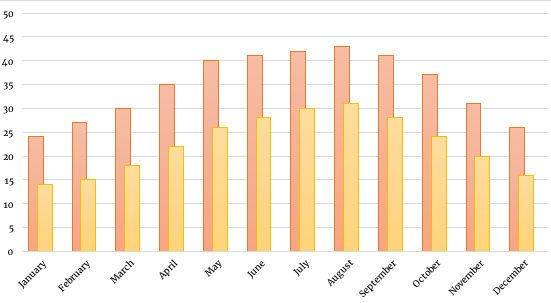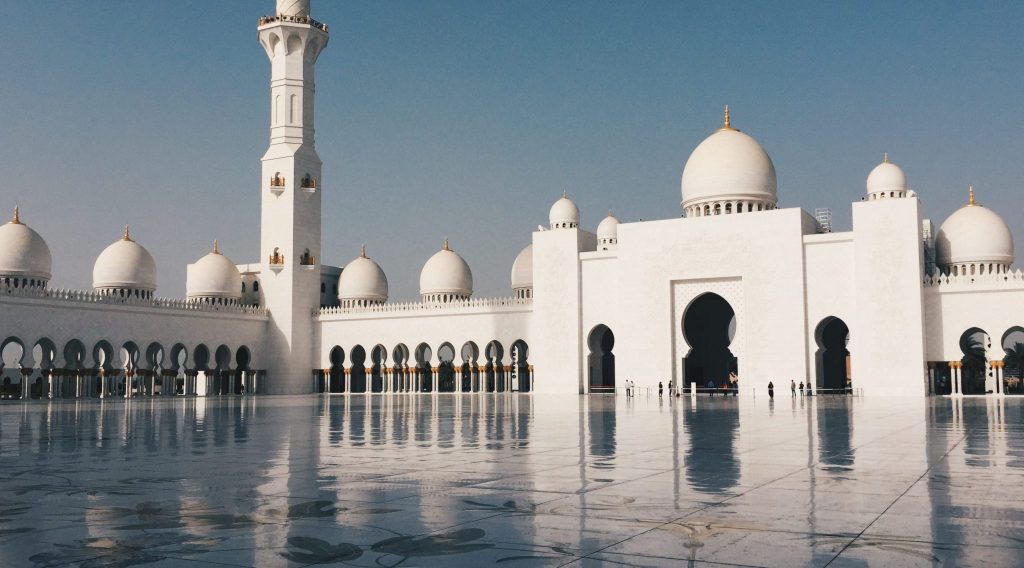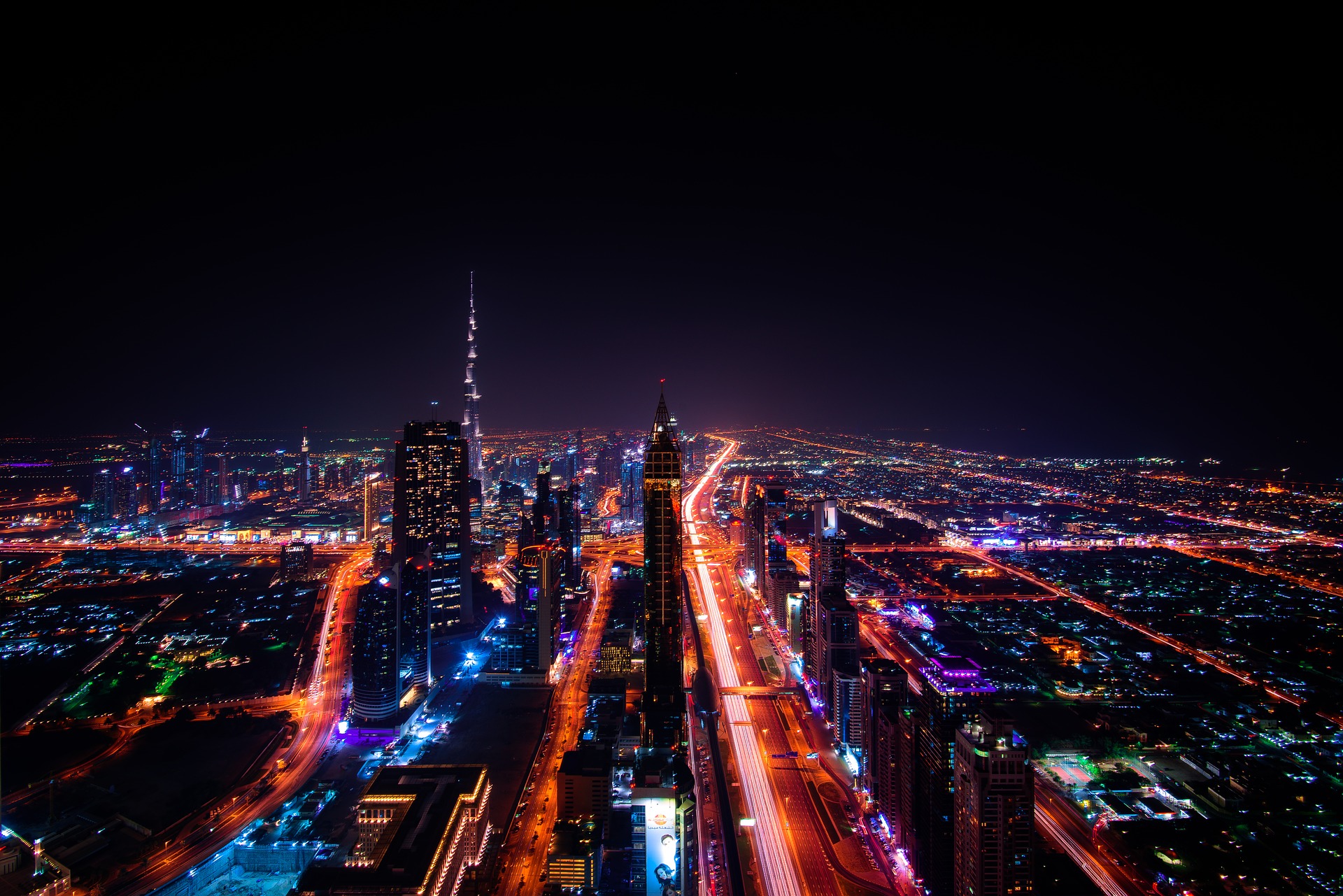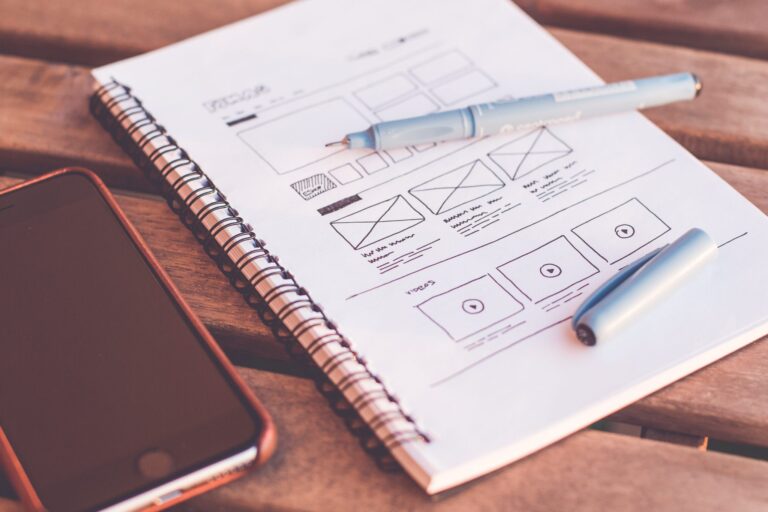Cabin Crew from around the world aspire to work for Emirates, flydubai and Etihad Airways. In Dubai, Emirates say their crew represent over 150 different nationalities and Etihad has staff from a similar number of countries. Even flydubai has employees from over 100 different nationalities.
The vast majority of expatriate Cabin Crew will undoubtedly have a fantastic life in the United Arab Emirates (UAE). The climate is good, crime is low and the standard of living is high. Last year, Dubai was ranked as the 28th happiest city in the world. Not bad for a megalopolis of 2.8 million people that’s increasing by around 5% a year.
However, depending on where you come from in the world, the lifestyle, customs and laws can be very different from what you’re used to. Most people won’t have a problem adapting to their new life in this Gulf nation – Dubai, especially, has come a long way in just a few short years. Abu Dhabi isn’t far behind.
But for some, the change in culture and lifestyle can be a huge shock that they weren’t prepared for. Even if you’ve visited the UAE on holiday, moving here permanently can be a daunting experience. In the past, Emirates and Etihad organised Open Day’s that gave an insight into these issues. But with these a thing of the past, this article can give you an indication of what to expect.
We’ve broken this article into six headings: Population, Climate, Lifestyle, Laws and Customs, LGBT Rights, Ramadan. Again, it’s worth noting that anything you read here isn’t meant to “put you off” – It’s very rare for expatriate Cabin Crew to find the lifestyle so hard to cope with that they leave.
Population
Migrant Workers
The UAE is a very cosmopolitan country with a large expatriate population – much larger than the indigenous population. The country attracts plenty of well-paid, high-skilled workers but the majority of migrant workers are low-paid labourers from countries such as Pakistan, the Philipines, India, and Bangladesh.
Attention has been drawn to the apparent plight in which these workers find themselves. The human rights charity, ‘AWARE’, says that construction workers have been “beaten, exploited, and trapped in forced labor situations.” They also claim the labour camps in which many workers live are “substandard” and wages are regularly withheld or underpaid.
You’ll see a lot of construction workers being bussed around Dubai in non-airconditioned coaches at the height of summer. They often work long hours and serious construction accidents are not uncommon.
However, on the flip side, many of these workers would be in an even worse position if they stayed in their home countries. Working in the UAE allows them to send vital money home to support their families. It’s also worth noting that the conditions for migrant workers have substantially improved in recent years.
Sponsorship and Medical Tests
To work in the UAE you’ll initially be required to obtain sponsorship from an employer. Emirates, flydubai and Etihad will arrange all necessary documentation for this process. Unlike Qatar, you do not need the permission of your employer to leave the country. If you decide to leave your job, your work visa will be cancelled within 2-3 days. You’ll then have to move onto a tourist visa to remain in the country.
The UAE authorities will not issue work visas to anyone who has HIV/AIDS, active tuberculosis, or hepatitis. You will have to undergo blood tests.
Climate
Located on the Arabian Peninsula, the UAE is bordered by Oman and Saudi Arabia – as you could probably guess it can get very hot. There are in fact some mountainous areas close to Oman that can see some snow in winter but on the whole, Dubai and Abu Dhabi have year round sun and heat.
The best months for weather are from October through to March. Temperatures start to drop in the second half of October, reaching a daytime high of about 31 centigrade in November. December, January and February are generally are a little cooler, with a small amount of rain as well.

Things start to heat up from late April onwards. The summer months can be very hot – highs reach an average of 41 centigrade but individual days can get much hotter than this. Even in the middle of the night, the temperature won’t fall below 31 centigrade.
Dubai has air-conditioned bus stops – which seems luxurious but they really are a necessity (Abu Dhabi doesn’t have these perks just yet).
Lifestyle
Cost of Living
Dubai has positioned itself as a tourist mecca – grand hotels, amusement parks, malls and special events seem to pop up every week. But living in Dubai or Abu Dhabi can be a little different. Sure, you’ll enjoy the waterparks, beach clubs, concerts and luxury clubs from time to time – just not every day.
The UAE is an expensive country and even though things aren’t taxed (yet) your wages still won’t go that far. Food and drink can be particularly expensive (and not great quality) as the majority has to be imported.
That being said, Dubai is often rated as a cheaper city to live than global cities such as London, New York and Singapore. As your accommodation is paid by the airline (an allowance for flydubai), one of the biggest costs of living in the UAE is taken care of straight away.
Summertime
The long summer months can be a difficult time to live in the UAE. It’s almost impossible to comfortably spend any time outside during daylight hours. Most outdoor activities stop and life moves inside. Expat residents complain of feeling ‘down’ and depressed because they cannot enjoy the outdoors.
Luckily, Dubai and Abu Dhabi are well prepared with huge air-conditioned malls, indoor sports halls and even indoor amusement parks.

Getting Around
The UAE was built for the automobile. Huge highways with five or six lanes in either direction are the norm. Most residents rely on their cars or taxis to get anywhere. Abu Dhabi especially is a very spread out city that makes walking or cycling between destinations a near impossibility.
Dubai has seen improvements to its public transport infrastructure. The metro, light railway and bus network have significantly improved connectivity around the city. Taxis are plentiful but not nearly as cheap as what they used to be.
On the downside, the UAE has one of the worst vehicle accident and road death rates in the world. The World Health Organisation has estimated that drivers in the UAE are seven times more likely to be killed in a traffic accident than a driver in the UK.
Freedom of Expression
You won’t see a protest or march in the UAE. Activities that you might consider normal in your home country – such as advocating for a particular cause like women’s rights – are curtailed in the UAE. Making defamatory or offensive comments about the UAE, its institutions, the royal family, etc. is illegal.
Both men and women should dress modestly in accordance with the local Islamic culture. That being said, the UAE does recognise different standards depending on the circumstances. At the beach, it’s perfectly fine for ladies to wear bikinis (although not to go topless). As a whole, the country has become a lot more relaxed towards standards of dress in recent years.
Fundraising and charity work are heavily restricted. You should only offer to volunteer through an official government programme and be properly registered with the authorities. Even promoting a charity on Facebook or other social media can land you in hot water.
Laws and Customs
As a Muslim country, the laws in the UAE are based on civil and Sharia law although they can differ from Emirate to Emirate. Local customs reflect widely established Islamic practices.
The judicial system can be very slow and suspects will often find themselves imprisoned without trial for months or even years. The death penalty is legal for certain crimes.
Drugs
The UAE authorities have a zero tolerance approach to drugs crimes. Narcotics offences are dealt with harshly and even medical drugs are more heavily restricted than what you might be used to. If you are found in possession of an illegal drug (including marijuana), you will be arrested and detained without bail. Even trace amounts found in your urine or blood will be deemed as possession.
The death penalty applies to drug trafficking.
So called ‘legal highs’ are illegal in the UAE. So too are poppy seeds, electronic cigarettes and certain medicines.
Alcohol
Alcohol is permitted in the UAE except in the state of Sharjah where possession and consumption are against the law. Alcohol is restricted to a small number of licensed premises – these are generally found within hotels. The vast majority of restaurants, cafes. etc. do not sell alcohol.
You can only have alcohol at home if you are a non-Muslim and have a liquor licence issued by the UAE authorities. Alcohol cannot be bought at the supermarket although there are a couple of special shops where you need to present your liquor licence
Being drunk in public is considered a serious offence – You can be arrested and detained. You are not allowed to drive under the influence of alcohol in the UAE at all.
Offensive Behaviour
Swearing and making rude gestures are illegal. Shouting at someone or showing your frustration while driving may result in the police being called.
Public displays of affection are frowned upon. Holding hands with your boyfriend or girlfriend in a mall could see you getting told off. Kissing in public has resulted in people being arrested.
Sexual Assault
As with all crime in the UAE, sexual assault and rape are generally very rare but it does happen. The manner in which female rape victims have been treated has led to controversy in the past. Last year, a British expat was arrested for sex outside of marriage after she reported being the victim of a rape. The case was dropped after an international public backlash.
Sexual assault victims are advised to immediately contact their embassy or consulate to obtain advice and support before approaching the UAE authorities.
Relationships
All sex outside of marriage is illegal. As civil partnerships and common law marriages are not recognised in the UAE, sex in these circumstances would also be illegal. A foreign couple were recently arrested in Abu Dhabi for this crime when the female partner became pregnant. She was reported to police by medical personnel and detained for several months.
Unmarried couples should not stay overnight in one another’s home or share a hotel room together. In reality, many couples break this law all the time without any repercussions.
Social Media
The internet and social media posts are monitored by the authorities. Posts that are deemed defamatory, rude or obscene may lead to your arrest and prosecution.
Certain websites are banned and foreigners sometimes resort to VPN’s to access online material (by the way – that’s also illegal). In the past, Facetime and other video messaging services were barred. However, it looks like these services are now being allowed in some parts.
Finances
Getting into debt can be a very serious crime. Failing to pay credit card bills, etc. will be seen as a fraudulent act. If you attempt to leave the country with outstanding debt, you will be detained.
Gambling is illegal although raffles are permitted.
LGBT Rights
Homosexual relationships and gay sex are illegal – no matter the gender. In reality, the UAE is a fairly tolerant country and people are allowed to go about their normal day to day lives. However, homosexual public displays of affection or anything that causes offence is likely to result in authorities taking action.
There isn’t really any ‘gay’ culture to speak of and support networks do not exist. Whether gay or straight, dating apps are widely used across the UAE and are not restricted.
Cross-dressing (or anything that could be deemed as cross-dressing) is illegal.

Ramadan
The Islamic holy month of Ramadan is an incredibly important time for Muslims around the world. In 2017, Ramadan is expected to start on 25th May and finish on 25th June. During this time Muslims are not permitted to eat or drink anything between sunrise to sunset. Smoking, chewing gum and listening to music is also barred.
It’s incredibly important that foreign visitors and workers (no matter what their religion) respect the customs and traditions of the UAE people during Ramadan.
Many restaurants and cafes will close during the day and you are not allowed to be seen eating, drinking, chewing or smoking in public. In recent years, more and more restaurants have provided services to non-Muslims during daylight hours. In larger malls, the food court will be screened off from view and some restaurants have the windows blacked out. Only non-Muslims are allowed in these areas during daylight hours.




